But lack of leadership was a challenge despite superior tools, knowledge and wealth compared to previous periods in history.
A coalition of former world leaders and global health experts has issued a stark warning against ignoring scientific evidence in policy-making, as it hampers the ability to tackle pandemics and climate change. They blame this on countries putting their own interests ahead of global cooperation during a hybrid side event at the 80th United Nations General Assembly (UNGA), in New York, USA.
The experts agreed that evidence-based decision-making and cooperation would shield the world from future shocks, but the lack of leadership was a challenge despite superior tools, knowledge, and wealth compared to previous periods in history.
Dr Gro Harlem Brundtland, former Prime Minister of Norway and former Director-General of the World Health Organization (WHO), said the main problem is “Establishing a link between climate, conflict and health”, which the world is dealing with at the same time. She stated that the “missing component” is not capacity but political will to lead. Dr Brundtland urged leaders to intertwine the effects of climate change on health, as both are key to creating good policies.
Helen Clark, former Prime Minister of New Zealand and Co-Chair of The Independent Panel, emphasised that the scientific link between climate and health is irrefutable, and the time for developing a concrete global action plan is now. “World leaders need to be operating in crisis mode on issues of science and health.”
Only WHO addresses global health threats without one global leader for pandemics
A main point was that the world needs stronger global rules, but since there was no ‘global leader’ against pandemics, experts said bodies like the WHO are essential for spearheading a joint response..
“If I hadn’t served as a PM, I wouldn’t have understood that only WHO could address global health threats, as there is no one global leader for pandemics,” Dr Brundtland shared.
She used her experience to justify flight bans during COVID-19 based on global health needs rather than national economic interests alone.
Nobel Peace Laureate Juan Manuel Santos, former President of Colombia, urged leaders to make bold decisions based on science, however unpopular. “We need an ambitious attitude and uninterrupted focus,” he said. “Climate change and pandemic mitigation agreements shouldn’t be overtaken by events in Gaza and Ukraine, as dispersed focus would limit progress.”
The panel proposed specific solutions, a notable one being that finance ministers join health ministers at the World Health Assemblies in Geneva, Switzerland, to prevent critical pandemic mitigation policies from stalling due to a lack of funding decisions.
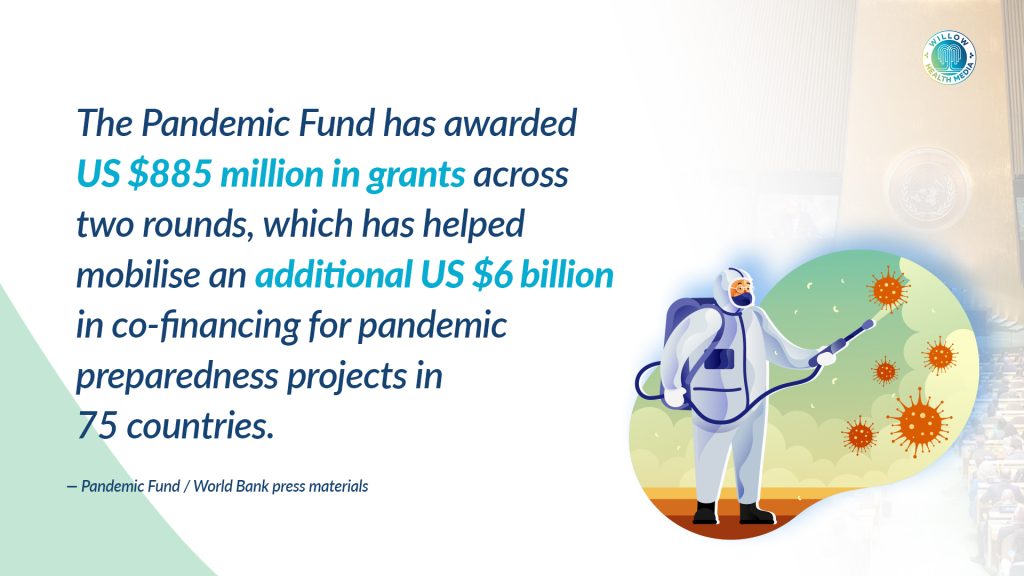
In Texas, USA, kindergarten vaccination rates fell below the 95 per cent threshold
The discussions also highlighted the dangerous consequences of science denial. Mariângela Batista Galvão Simão, a senior health official from Brazil, noted that “When denialism becomes a policy, it affects not only the country where it happens but the world.”
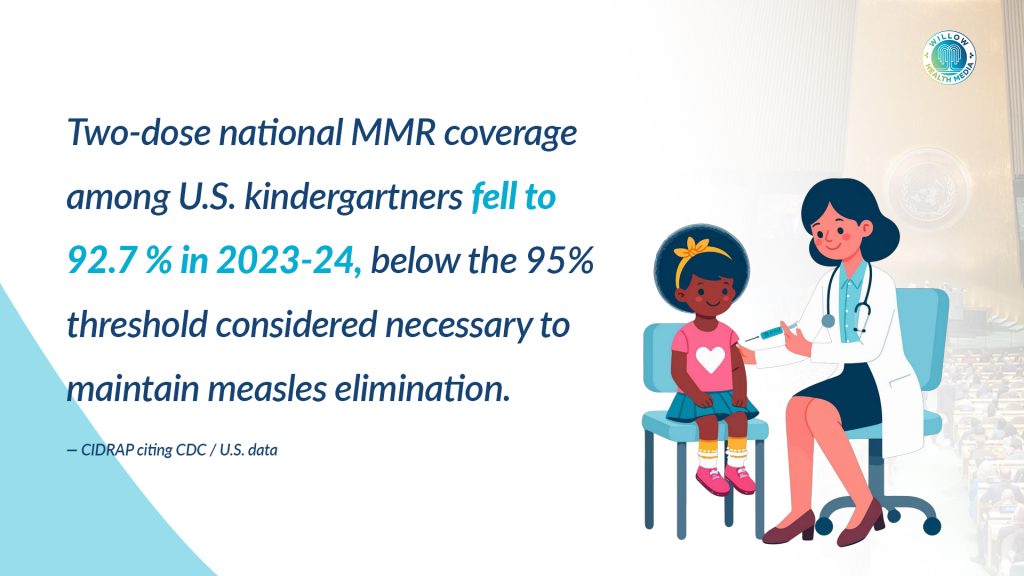
She cited the surge in measles cases in Texas, USA, where kindergarten vaccination rates have fallen below the 95 per cent threshold required for herd immunity due to opposition from parents and local leaders and which “reverses decades of gains” for a vaccine that has been around for over six decades.
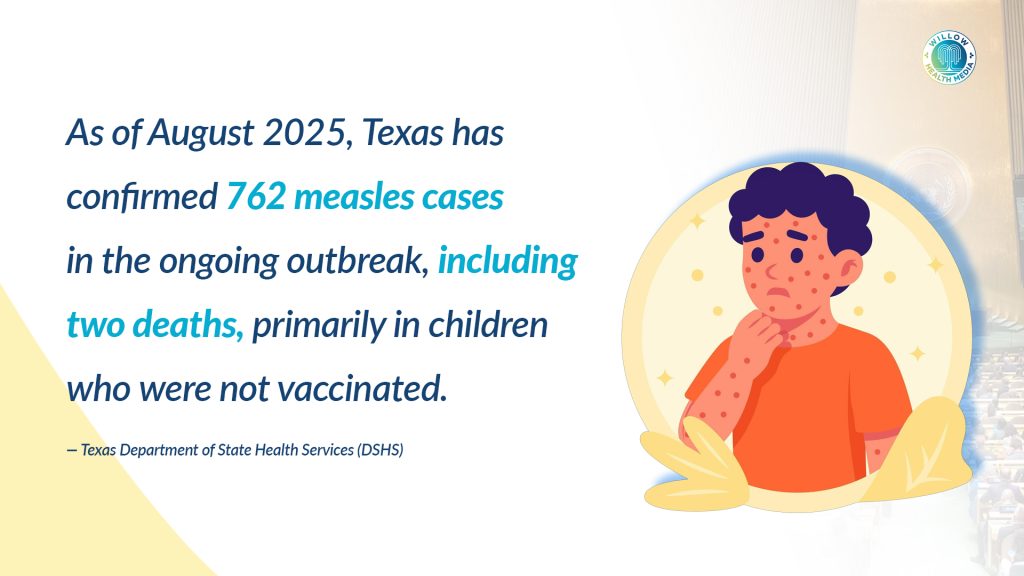
To counter misinformation, Simão called for a ‘Health Day’ during the UN’s climate Conference of the Parties (COP) to deepen discussions on the health impacts of climate change.
On sustainable financing, Priya Basu, Executive Head of the World Bank’s Pandemic Fund, stressed the urgent need for more money. She said that although the fund has distributed over $7 billion to 75 countries in three years, the demand is “five times what we have.” Basu called on countries and other funders to provide more resources for international cooperation.
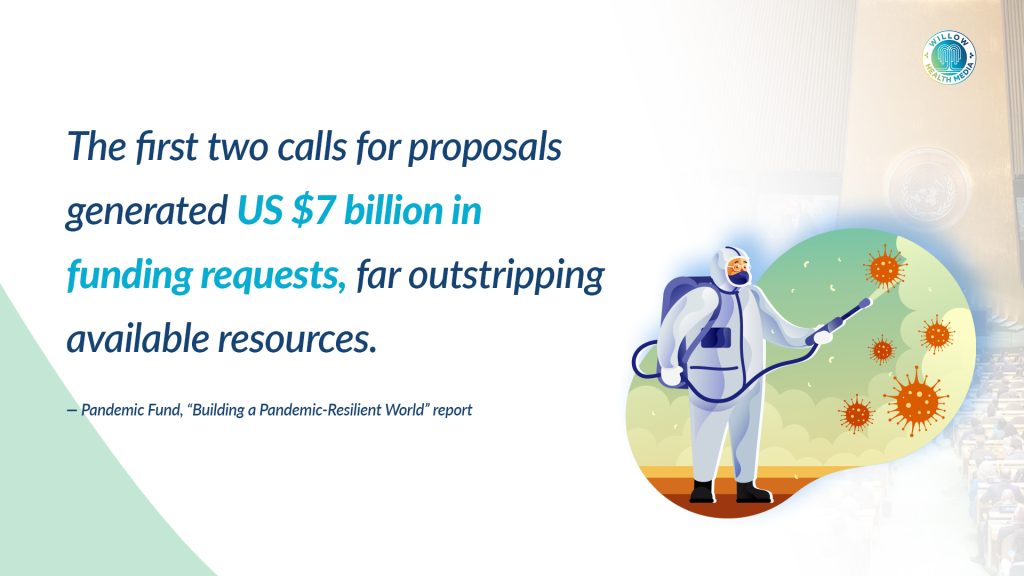
Call for localised resilience and greater investment in data and analytics
Dr Chikwe Ihekweazu, Executive Director of the WHO Health Emergencies Programme, emphasised the need for “strong national public health agencies to complement WHO, CDC and other global partners…as we move away from dependency.”
Dr Chris Elias of the Gates Foundation supported the call for localised resilience and greater investment in data and analytics at the country level to guide strong, self-reliant health systems.
The clarion call from New York was unambiguous: overcoming the interconnected crises of health, climate, and conflict requires a renewed commitment to multilateralism, a courageous embrace of scientific evidence, and a strategic investment in both global funds and local capacity to safeguard the future of the planet.


















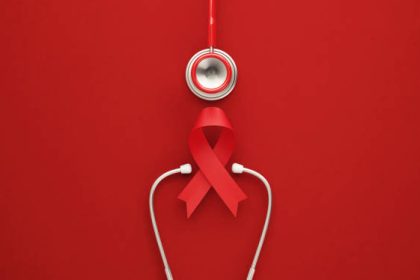
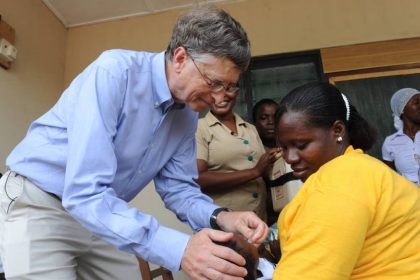



Well written, solid and timely.